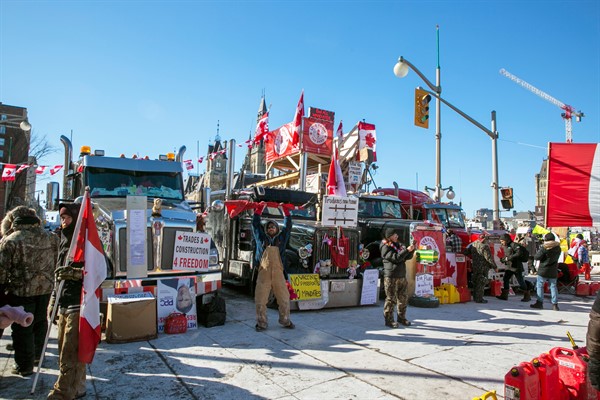For the first time in half a century, Canada’s federal government has declared a national emergency. The move was in response to continuing demonstrations in major cities and at several points along the Canada-U.S. border, where truckers and other protesters have blockaded major commerce routes and crossings for the better part of a month.
The protests, which paralyzed Canada’s capital city Ottawa for weeks, were sparked by a national COVID-19 policy requiring truck drivers to be vaccinated in order to cross into Canada from the United States. The movement has since expanded to give voice to a wider variety of grievances, attracting support from far-right groups as well as other citizens frustrated by the country’s pandemic restrictions. The blockade has been almost entirely nonviolent, but has caused major disruptions to the local and regional economy. U.S. automakers in particular suffered from the protesters’ partial shutdown of the bridge connecting Canada and Detroit, over which thousands of trucks and more than $300 million in goods pass every day.
The Canadian government’s decision to declare an emergency came in part at the urging of U.S. President Joe Biden, who warned of the serious effects of the blockade on U.S. businesses. By Thursday morning, the Ontario provincial police had begun to mobilize for an operation to disperse the protesters.

